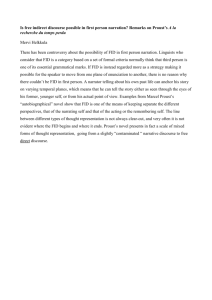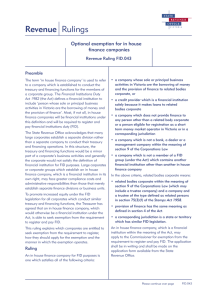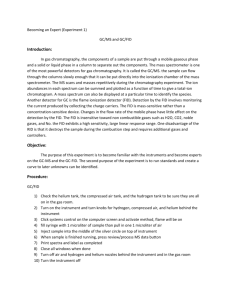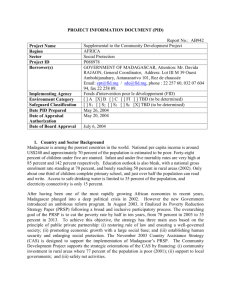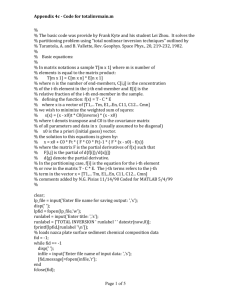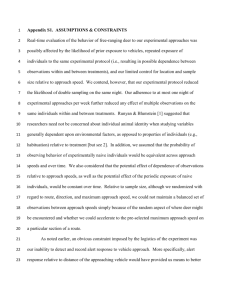Slides - Computer Science
advertisement
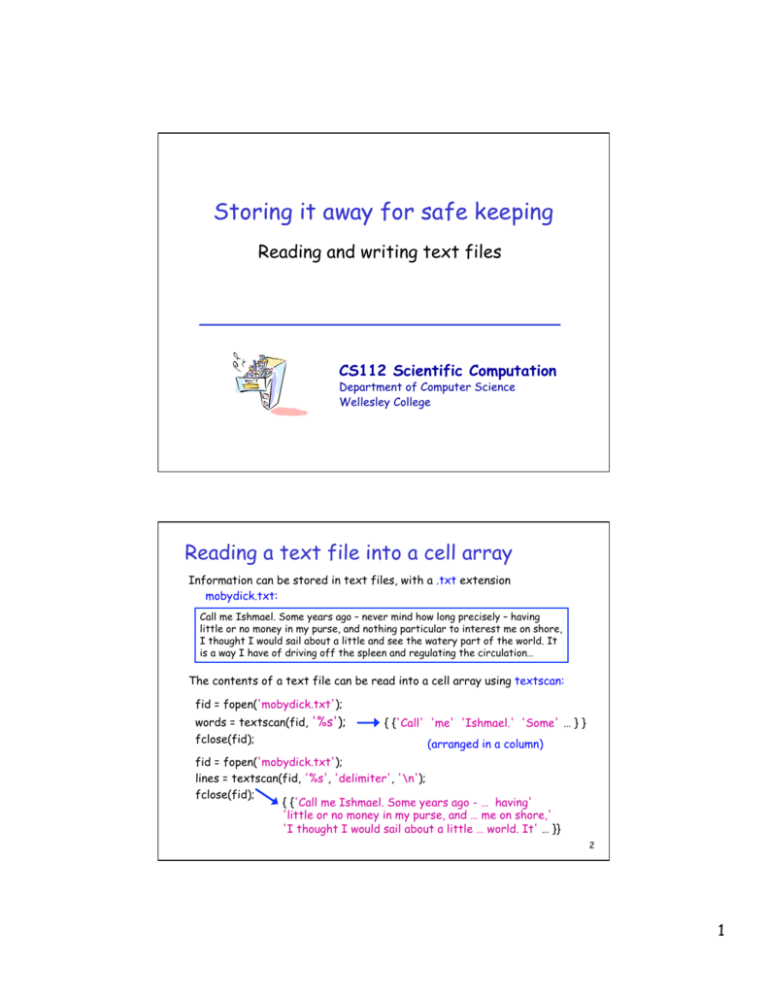
Storing it away for safe keeping
Reading and writing text files
CS112 Scientific Computation
Department of Computer Science
Wellesley College
Reading a text file into a cell array
Information can be stored in text files, with a .txt extension
mobydick.txt:
Call me Ishmael. Some years ago – never mind how long precisely – having
little or no money in my purse, and nothing particular to interest me on shore,
I thought I would sail about a little and see the watery part of the world. It
is a way I have of driving off the spleen and regulating the circulation…
The contents of a text file can be read into a cell array using textscan:
fid = fopen('mobydick.txt');
words = textscan(fid, '%s');
fclose(fid);
{ {'Call' 'me' 'Ishmael.' 'Some' … } }
(arranged in a column)
fid = fopen('mobydick.txt');
lines = textscan(fid, '%s', 'delimiter', '\n');
fclose(fid);
{ {'Call me Ishmael. Some years ago - … having'
'little or no money in my purse, and … me on shore,'
'I thought I would sail about a little … world. It' … }}
2
1
Reading formatted text with textscan
Suppose we have a text file elements.txt that contains a mix of
numerical data and strings, in a fixed format
1 hydrogen H 1.01
2 helium He 4.00
3 lithium Li 6.94
4 beryllium Be 9.01
5 boron B 10.81
6 carbon C 12.01
7 nitrogen N 14.01
8 oxygen O 16.00
9 fluorine F 19.00
10 neon Ne 20.18
...
3
Reading formatted data
The format string can incorporate other types:
format string:
%u integer
%s string
%f float
!fid
= fopen('elements.txt'); !
elements = textscan(fid, '%u %s %s %f');
fclose(fid);
Recall our text file elements.txt with numerical data and strings:
>> atomNums = elements{1}'
1 2 3 4 5 6 7 8 9 10 …
>> names = elements{2}'
'hydrogen' 'helium' 'lithium' 'beryllium'
>> symbols = elements{3}'
'H' 'He' 'Li' 'Be' 'B' 'C' 'N' 'O'
>> masses = elements{4}'
1.0100 4.0000 6.9400 9.0100 10.8100
'boron'
'F'
'carbon' …
'Ne' …
12.0100
14.0100 …
' is the transpose operator
4
2
Sometimes life is not so simple…
Suppose we want to compute the total value of our toy
inventory, from a text file toys.txt with the following format:
name
mr. potato head
slinky
hoola hoop
monopoly
price
$3.29
$1.29
$2.19
$3.89
quantity
80
120
60
50
fid = fopen('inventory.txt');
tokens = textscan(fid, '%s’, ‘headerlines’, 1);
tokens = tokens{1};
fclose(fid);
totalValue = 0.0;
for index = 1:length(tokens)
token = tokens{index};
…
end
disp(['total: $' num2str(totalValue)])
5
vice versa: Writing formatted data
Suppose you have data in the MATLAB workspace that you
want to store in a text file in a desired format
>> atomNums = [1 2 3 4 …];
>> names = {'hydrogen' 'helium‘ 'lithium' 'beryllium' …};
>> symbols = {'H' 'He' 'Li' 'Be' …};
>> masses =[1.01 4.00 6.94 9.01 …];
1
2
3
4
…
hydrogen H 1.01
helium He 4.00
lithium Li 6.94
beryllium Be 9.01
elements.txt
6
3
Formatting strings with sprintf
>> sprintf( '%u %s %s %f' , atomNums(1), names{1}, symbols{1}, masses(1))
ans =
1 hydrogen H 1.010000
for i = 1:4
disp(sprintf(’%u %s %s %f', atomNums(i), names{i}, symbols{i}, masses(i)))
end
1
2
3
4
hydrogen H 1.010000
helium He 4.000000
lithium Li 6.940000
beryllium Be 9.010000
for i = 1:4
disp(sprintf('%4u %12s %4s %8.2f', atomNums(i), names{i}, symbols{i}, ...
masses(i)))
end
!
!
!
!1
2
3
4
hydrogen
helium
lithium
beryllium
H
He
Li
Be
1.01
4.00
6.94
9.01
7
Finally… Writing data to a text file
(1) Open file for writing
(2) Write text to file
(3) Close file
fid = fopen('elements.txt', 'w') ;
for i = 1:length(atomNums)
fprintf(fid, '%4u %12s %4s %8.2f \n', atomNums(i), …
names{i}, symbols{i}, masses(i));
end
fclose(fid);
8
4
Write a vector of numbers all at once
A vector of numbers can be written to a file all at once:
xdata = [1.0 3.2 7.4 8.7 9.1];
ydata = [32.8 21.9 17.6 29.2 30.4];
results = [1.09 2.13 3.48 2.87 0.98];
fid = fopen('results.txt', 'w');
fprintf(fid, 'experimental results:');
fprintf(fid, '\nxdata: ');
results.txt
fprintf(fid, '%6.2f', xdata);
fprintf(fid, '\nydata: ');
experimental results:
xdata: 1.00 3.20 7.40 8.70 9.10
fprintf(fid, '%6.2f', ydata);
ydata: 32.80 21.90 17.60 29.20 30.40
fprintf(fid, '\nresults: ');
results: 1.09 2.13 3.48 2.87 0.98
fprintf(fid, '%6.2f', results);
fclose(fid);
9
Writing files with literal strings
data = {{'mary' 5 6.2 85.7} …
{'karen' 3 5.5 89.8} …
{'betty' 7 3.4 92.4} …
… };
cs112.txt
Data for CS112 assignment work
Spring 2010
mary
used drop-in 5 times
average assignment time 6.2 hours
assignment grade 85.7
karen
used drop-in 3 times
average assignment time 5.5 hours
assignment grade 89.8
…
fid = fopen('cs112.txt', 'w');
fprintf(fid, ‘Data for CS112 assignment work \nSpring 2010 \n\n');
for i = 1:length(data)
fprintf(fid, ...
'%s\nused drop-in %u times\naverage assignment time %3.1f hours\nassignment grade %4.1f\n\n', ...
data{i}{1}, data{i}{2}, data{i}{3}, data{i}{4});
end
fclose(fid);
10
5
Other file formats
MATLAB also supports a variety of
industry standard formats and
custom file formats
This allows MATLAB to exchange data
with other programs
Text: MAT, CSV, DLM, TAB
Scientific data: CDF, FITS, HDF
Spreadsheet: XLS, WK1
The urlread function reads in the html
code for an input URL into a string
11
6

